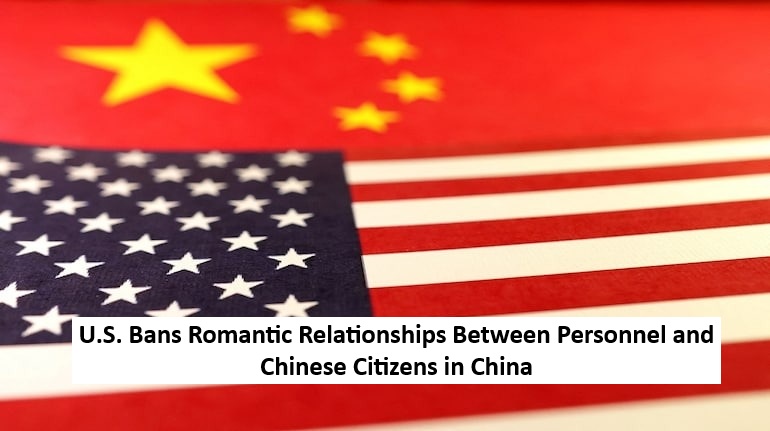
The U.S. government has enforced sweeping non-fraternization policies barring American government workers, including diplomats, contractors and employees with security clearances, as well as their family members, from engaging in any sexual or romantic relations with Chinese nationals while in China. This policy, as noted by some insiders, was first put into place during the term of former U.S. Ambassador to China Nicholas Burns, right before he completed his tenure in January 2025.
Despite the existence of some interagency guidelines, this policy is the first known blanket restriction of this sort since the Cold War. It builds on an existing 2024 policy that prohibited relations with lower-level staff employed by American diplomatic offices in China.
Policy particulars and their operationalization
The restriction is for all U.S. diplomatic offices in mainland China, which include the Beijing embassy and the consulates located in Guangzhou, Shanghai, Shenyang, Wuhan, as well as the U.S. consulate in Hong Kong. The policy remains non-applicable to American personnel working outside of China.
Those in existing relationships may apply for an exemption. If such a request is denied, they must either end the relationship or give up their post. Breach of any aspect of this policy will lead to immediate dismissal from China.
This information was provided verbally and in written form to U.S. personnel in China, but the U.S. State Department has not made this information available publicly.
National Security and Intelligence Concerns
The policy comes after increased attention was given to Chinese intelligence issues, including “honeypot” schemes, which are designed to solicit confidential information from American personnel. Intelligence analysts recall earlier instances of Chinese agents approach–using romantic or sexual means–some U.S. diplomats.
It is underscored that even the most average Chinese citizens might be coerced by the Ministry of State Security (MSS) to collect information from American sources.
Former CIA analyst Peter Mattis noted that the restriction is another sign of increased concerns regarding corporate espionage, who is known to abuse social ties to Blanket the China’s MSS.
China’s Internal Controls on Foreign Relations
The Chinese government has equally stringent policies on its staff's dealings with foreign persons. Civil servants face professional consequences if their spouse becomes a foreign national, while diplomats are routinely rotated to limit exposure to a foreign country. Chinese military and police personnel need to obtain specific permission to travel abroad.
Ever-Evolving US China Relations
This is happening in the context of rising international conflict concerning the USA and China, especially focusing on business interests, technological advancement, and military power within the Asia Pacific area. The blanket relationship ban goes to show the increasing animosity between the two countries.
Read More: Bangladesh Unrest Intensifies as Angry Mobs Target Media Offices Following Death of Student Leader

 Share
Share



